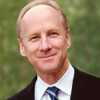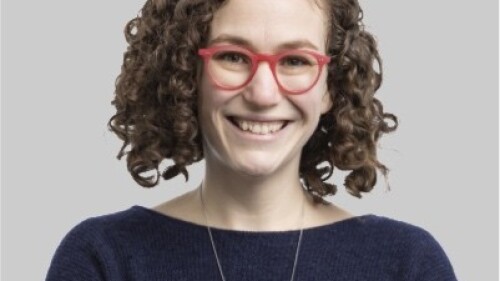With 2016 under way, I am very excited and hopeful about the changes taking place at ULI this year. We are continuing to move forward in three key areas: 1) a new global governance structure;
2) a major new information technology initiative; and 3) a relocation into a new workplace in Washington, D.C.
Our global governance restructuring initiative, which we are implementing under the guidance of ULI Global Chairman Randall Rowe, is progressing well. A major step in this regard was the selection of Patricia R. “Trish” Healy, founding principal of Hyde Street Holdings in Raleigh, North Carolina, as chairman of the Americas. This new member leadership position was added to the structure that already includes a ULI Europe chairman position and ULI Asia Pacific chairmanships for North Asia, South Asia, and Japan.
The ULI Americas chairmanship is a key part of a new governance structure that will create more opportunities for leadership and engagement by members in diverse markets around the world. We are thrilled to have Trish in this post. She brings an invaluable perspective on creating a structure that will help ULI be more responsive to members with different needs and interests but who are united in their commitment to creating thriving, sustainable communities.
In addition to the ULI Americas chairman position, the global governance plan includes an Executive Committee for each of the three ULI regions: the Americas; Europe, the Middle East, and Africa (EMEA); and Asia Pacific. It also includes a new staff position, chief executive, Americas, who will join our regional executives for EMEA and Asia Pacific, Lisette van Doorn and John Fitzgerald, respectively.
Another new staff position being added as part of the governance restructuring is a global chief marketing officer, who will round out our executive team with oversight over such key member-facing areas as strategic communications, membership marketing, and information technology. I’m confident that this new structure will make us more productive and effective; it is based in part on the district council network restructuring plan implemented a few years ago, which has proved highly successful in balancing local responsiveness with global alignment.
Equally exciting is our information technology initiative, which will vastly improve both your ability to reach and interact with other members and your ability to transact business with us. Later this year, we will debut ULI One, an exciting new platform that will serve as your portal to ULI’s many programs, products, and services. Whether you want to register for an event, renew your membership, contact a meeting panelist, or look up member-only content, ULI One will be your go-to source.
Another promising feature: this new member and customer service tool will include an online community (think Facebook, ULI style) that is designed to enhance the Institute’s longstanding tradition of knowledge sharing and networking. As a member of this community, you will be able to:
- create or join groups focusing on topics of interest to you;
- connect with members (as well as potential members who are in the database as ULI customers);
- post ideas, insights, photos, articles, presentations, or other material; and
- chat virtually with others.
All your activity in this online community will greatly enrich our information exchange and add considerably to ULI’s intellectual capital. What you share and how much you share is, of course, up to you. However, I encourage you to participate often: like everything else at ULI, how much you get out of this new service depends on how much you put into it.
Best of all, ULI One will be as easy to use from your smartphone as your laptop, giving you full-time access to whatever you need from ULI, whenever and wherever you need it.
Please stay tuned for full details on the launch of ULI One, how you can access the system, and how to take advantage of the many features that will enhance your overall experience as a member of ULI. We will be providing these updates over the next few months through a series of emails, so please make sure we have your correct email address to enable us to reach you with this important information.
Our third major project for 2016 is the relocation of ULI’s headquarters in Washington, D.C. We are moving about a mile east, from the Georgetown area to a more centrally located and transit-accessible building in the downtown core. The design of our new space will be much more open and flexible than our current layout, providing plenty of workplace options and space that fosters more interaction and collaboration. It reflects 21st-century workplace trends, with all workspaces and features accessible to all staff.
The new design will also welcome members into the space, whether for formal meetings or informal visits. With great anticipation, we are looking forward to the move in May 2016, and to welcoming each of you to your new global headquarters.
This year of great change for ULI promises to be one of the most pivotal in our organization’s 80-year history. Each of these initiatives will enhance our ability to better serve you; to provide what you want, need, and expect from your Institute; and to ensure that we are good stewards of your investment in ULI.





